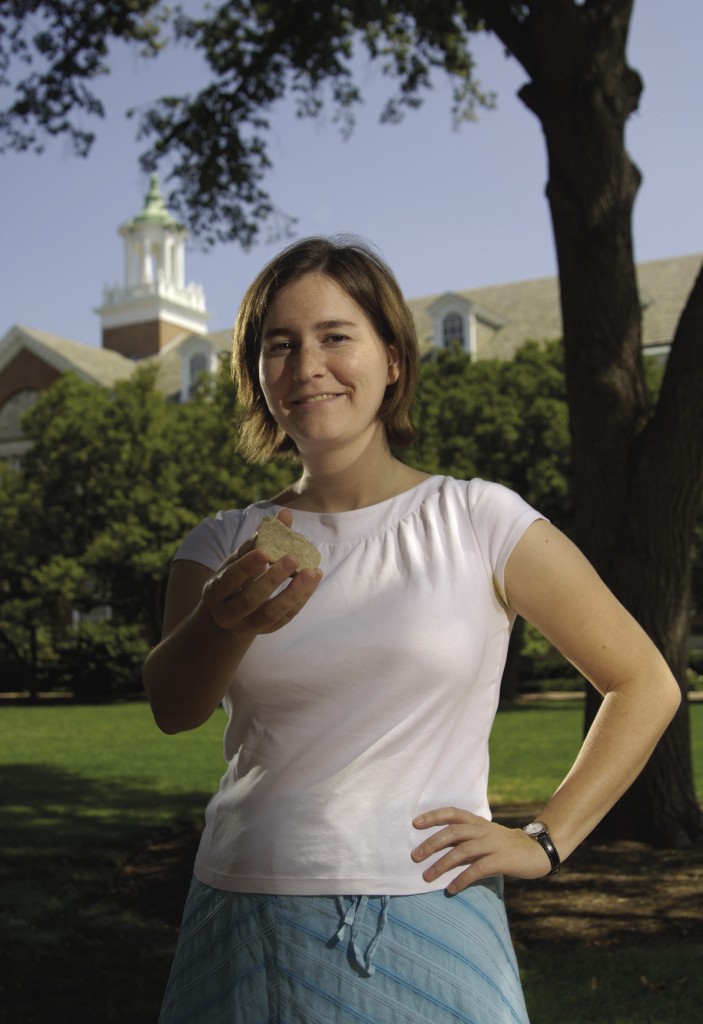Classical piano…math…creative writing, and now functionally graded materials. For doctoral student Katherine Acton, life has many layers.

ALTHOUGH SHE IS WORKING toward a PhD in Civil Engineering at the Whiting School, engineering was not Katherine Acton’s first love. It is just one of a long line of accomplishments.
Acton’s first love was classical piano, which she began to play as a little girl. A Baltimore native, she studied piano for years at the Peabody Institute’s Preparatory program, becoming “pretty good,” she says, by the time she headed for college in Massachusetts.
The college was Williams, where she excelled in two more fields of great interest to her. Her honors thesis was in creative writing, and she still writes stories and poems from time to time. Her other academic passion was mathematics, but she realized she wouldn’t be satisfied unless she could get into “something where it could be physically applied,” she recalls. This set the stage for full-time work and parttime schooling in engineering.
Acton had strong connections to Johns Hopkins even before her Peabody Prep classes. Her very first outing as an infant was to Spring Fair, the student-run weekend that attracts tens of thousands of visitors to the Homewood campus. Her grandfather, a physician, attended the Johns Hopkins School of Medicine and her brother’s life was saved by Hopkins physicians. So when she came back to the Baltimore area to look for a job, she also decided to take basic engineering courses at the Whiting School through what is now known as Engineering and Applied Science Programs for Professionals (EPP).
The job Acton took—on-site construction supervisor for a major contracting company— was somewhat surprising for a double-major in English and math. She found the work very satisfying. “A lot of people questioned what I knew,” she recalls, “so I had to work on developing my sense of self-confidence. I found that often it’s not so much what you know or say, but how you say it that matters.”
By 2003, Acton was able to return to academics full-time. Through her adviser, Lori Graham-Brady, associate professor of Civil Engineering, Acton has become interested in examining the material properties of composites, specifically functionally graded materials, which are composites having gradations of two or more materials. By serving as peer adviser for her department, Action has helped first-year female grad students find their niche.
While she hopes some day to get an MFA in creative writing and imagines she’ll probably return to industry, Acton is keeping her options open. As she puts it, “I still don’t like to overly plan my future.”




